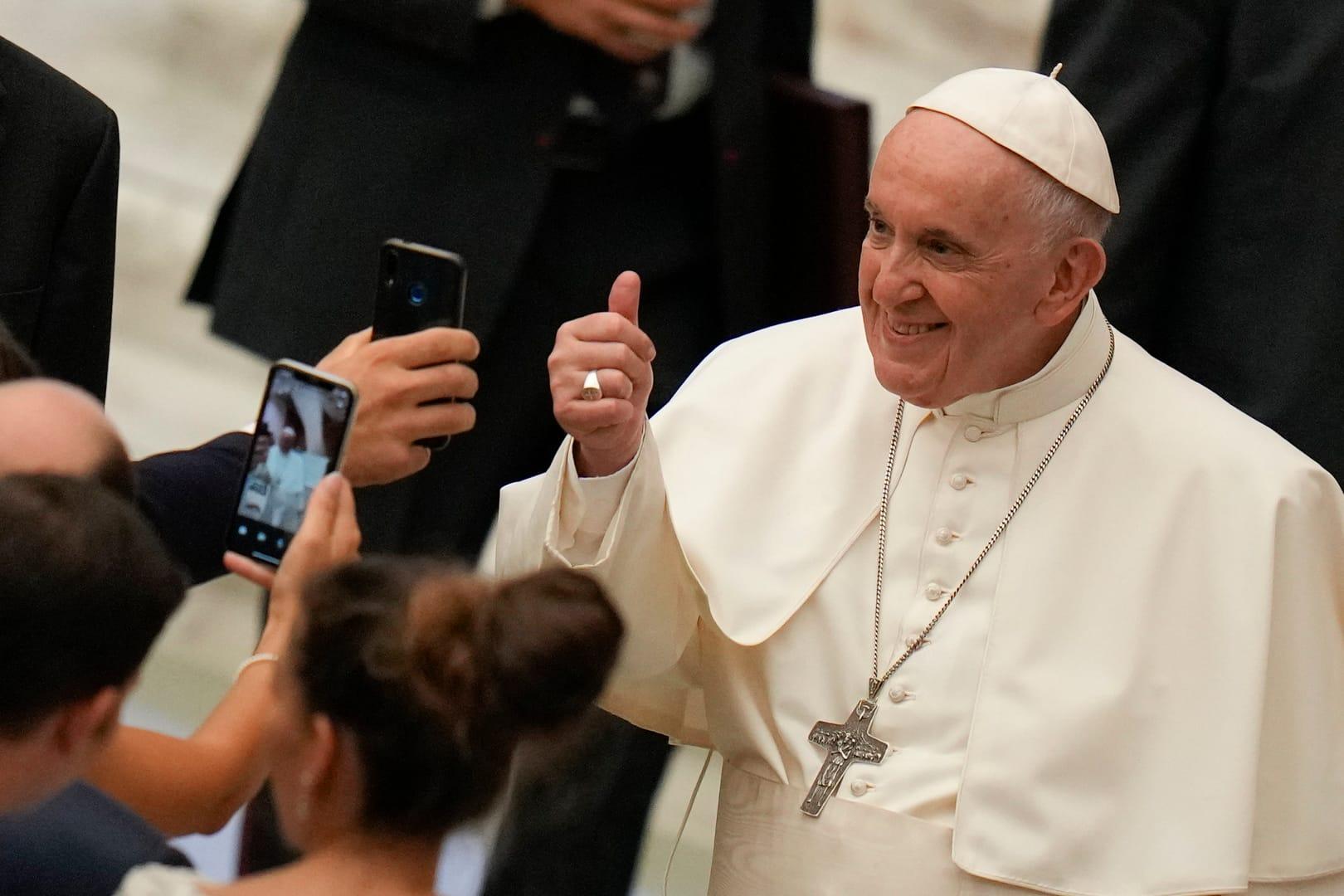ROME – U.S. President Joe Biden went before the United Nations Tuesday and declared, “We are not seeking a new Cold War, or a world divided into rigid blocs.” The statement became necessary in the wake a week earlier of the new “AUKUS” pact among the U.S., the UK and Australia, seen precisely as the dawn of a new Cold War between the Anglo-Saxon powers and China.
So, did the UN speech represent a walking-back of the geopolitical implications of the new alliance? Or, was it just the sort of rhetoric that great powers facing perceived threats always employ – “We don’t seek conflict, it can still be avoided if only our enemies come to their senses,” etc.?
Most immediate commentary, at least in Europe, took it pretty much in the latter sense.
European Commission President Ursula von der Leyden had already called for the EU to develop its own common military capacity in the wake of the abrupt U.S. pullout from Afghanistan, asking pointedly, “You can have the most advanced forces in the world, but if you are never prepared to use them, of what use are they?”
Those calls have accelerated post-AUKUS, and little about Biden’s assurances at the UN seem poised to change that. Just hours afterwards EU market commissioner Thierry Bretton told the Atlantic Council that trust in the U.S. across Europe “has been eroded” and the time has come for Europe to reposition itself to act on its own.
Yet Wednesday in Corriere della Sera, Italy’s paper of record, distinguished Italian essayist and political scientist Ernesto Galli della Loggia published the inevitable “emperor has no clothes” reaction to the idea of a “Euro-Army,” asking who, exactly, would have the authority to send such a force into war? Who could give the “go” order?
Presumably, Galli della Loggia writes, we’re not just talking about a force to conduct humanitarian and peace-keeping missions, which European troops have been doing for decades – and, he notes, with a decidedly mixed track record. Nor are we talking about repelling an aggressor within Europe itself, i.e., a defensive force, which is the purpose of NATO. Instead, the idea would be a genuine European army whose mission is to project and defend European interests around the world, in the classic way in which states and empires have deployed military force over the centuries as an extension of diplomacy.
For instance, suppose the situation in Afghanistan for women under the Taliban becomes completely intolerable, but the U.S., having just pulled out, has no appetite to go back in, and nobody else seems inclined to do it. Who in Europe could tell the commander of a common army to put boots on the ground, with the mission of eradicating the Taliban as a fighting force once and for all?
The problem is, Galli della Loggia says, the only possible authority in the European system right now that could approve such a mission would be the Council of Heads of State and Government, meaning the elected leaders of the 27 member EU states.
He asks, “Is it ever imaginable that 27 political leaders – expressions of electorates, traditions and interests enormously different among themselves – would decide to embark on a military action that could become violent and cost the lives of some of their own citizens, beyond creating unpredictably serious complications?”
At bottom, Galli della Loggia argues, the near-impossibility of envisioning an executive authority that could command a European army, even if you could put one together, is a reflection of a deeper failure of the European project. At the beginning, he writes, the founders of the EU wanted it to be based on a shared political project. When that failed, he says, the EU became largely about trade, on the idea that a common economy would lead to a deeper political union. Seventy years later, Galli della Loggia concludes, we now know that a common economy leads only to a common economy.
Are the events of the past few weeks enough to actually change that calculus? Perhaps. Twenty years ago, September 2001 brought brief-lived sense of, “We’re all Americans now.” September 2021 seems to be sowing the impression, “We’ve got to be Europeans now, because America just cut us loose.”
As one possible sign of something fundamental moving, French President Emmanuel Macron reportedly has signaled that he may be willing to reconsider long-rebuffed German requests to split France’s permanent seat on the UN Security Council in exchange for support for a common EU foreign policy and defense system.
If there is a unique moment now for Europe to get its act together, the foundation of any common political project almost certainly would have to lie in some form of Christian humanism, even if no one in 21st century western Europe would dare say so out loud. Christian humanism was the foundation upon which the EU was originally constructed, and it remains the lone European cultural achievement strong enough to sustain anything other than economic prosperity.
The take-away is that the next few months may be decisive in terms of whether Europe can develop a political infrastructure capable of undergirding von der Leyden’s desire for enhanced military capacity. In that effort, the Catholic Church across Europe, and especially the Vatican, could play a decisive role.
For decades, the Vatican has wanted a more independent, assertive Europe, one that can provide a genuine global counterweight to both the United States and Russia and China. Granted, the idea of a more robust military may not exactly be the Vatican’s preferred method, especially under a “peace pope” such as Francis, but the objective is nevertheless a longstanding Vatican idée fixe.
One great hallmark of Vatican diplomacy over the centuries, however, has been precisely its realism. As they survey the landscape, Francis and his advisers could just decide this is a moment in which the best has to be put on hold, in order to achieve the good.
Follow John Allen on Twitter: @JohnLAllenJr













